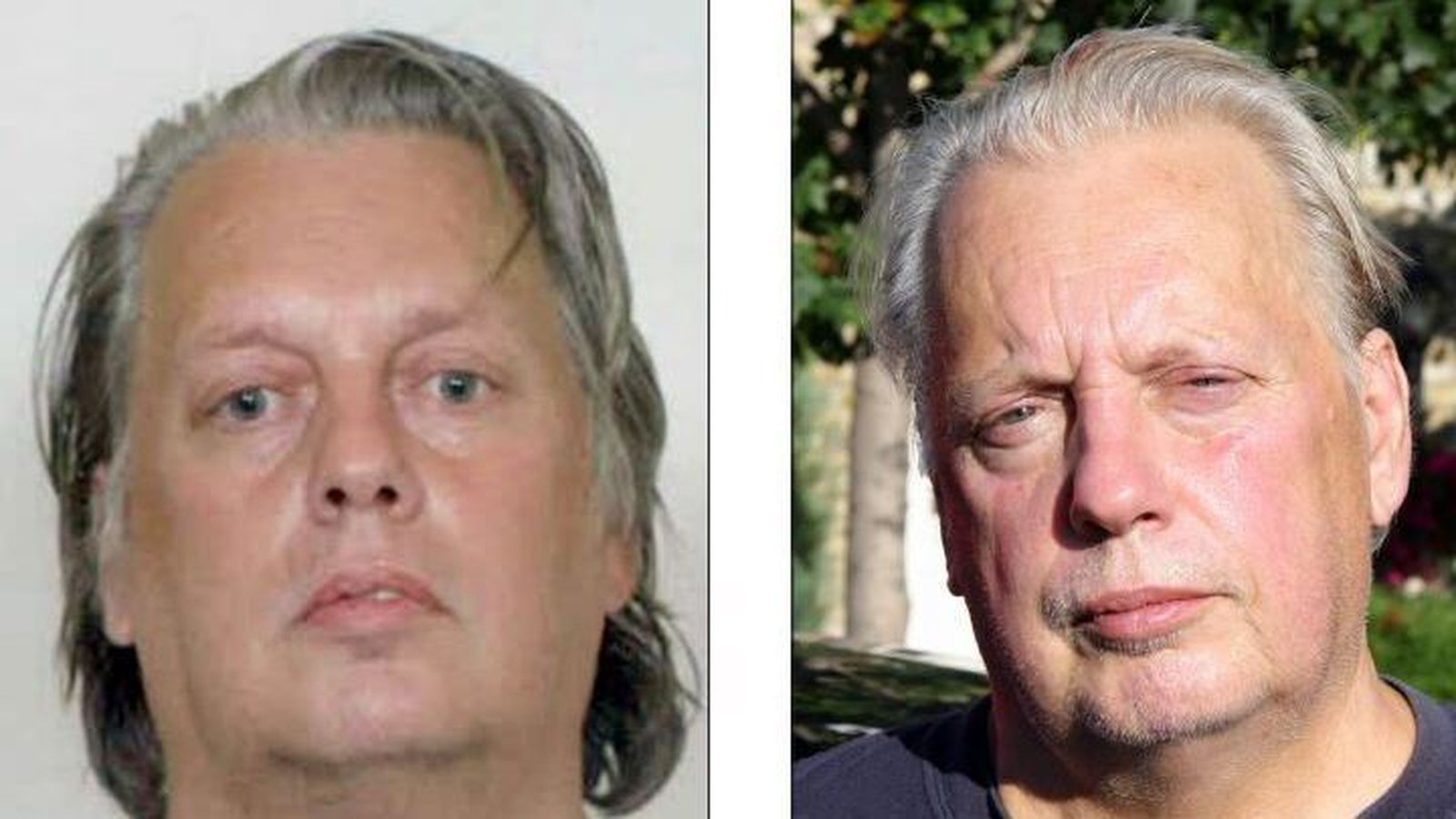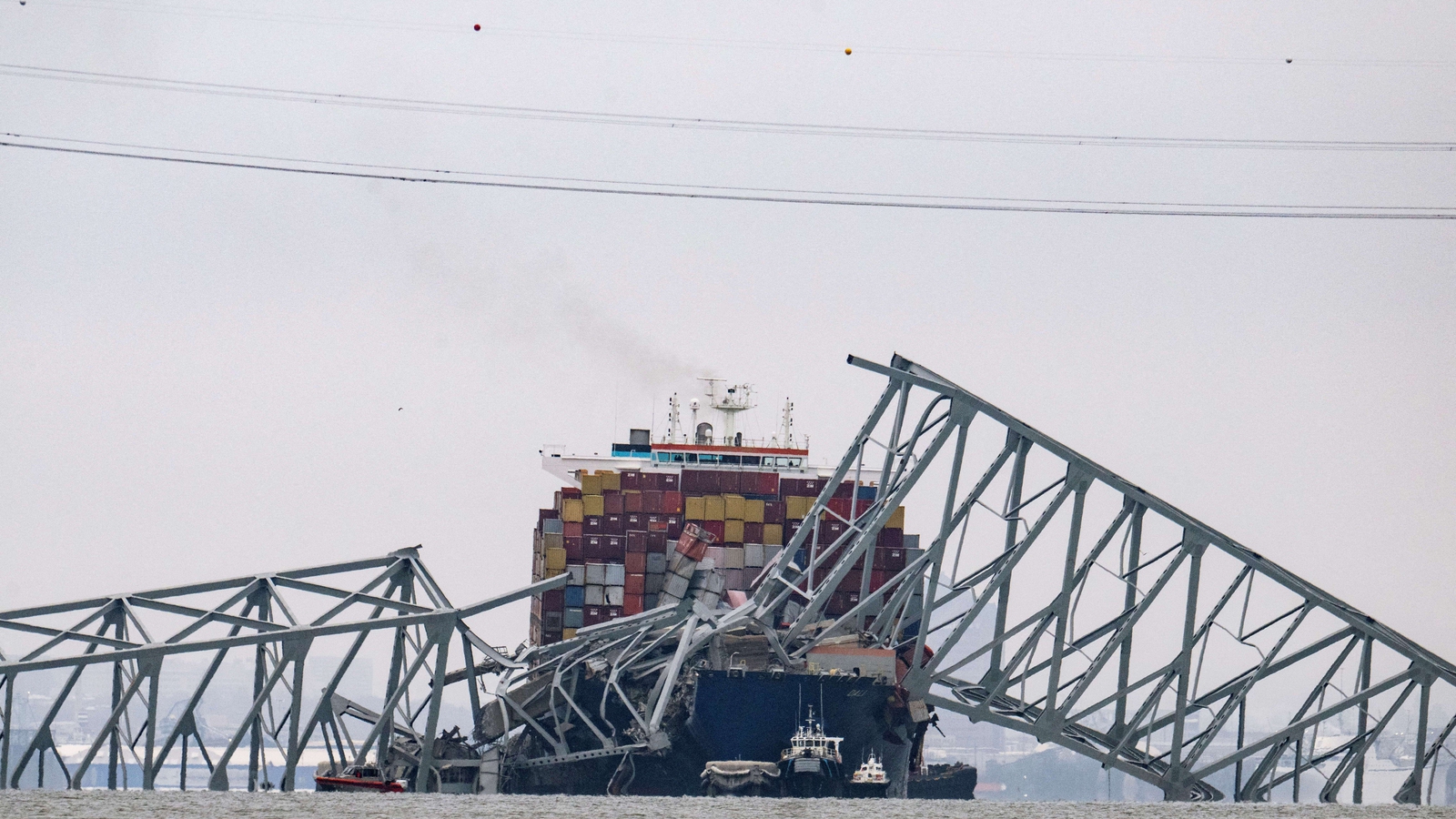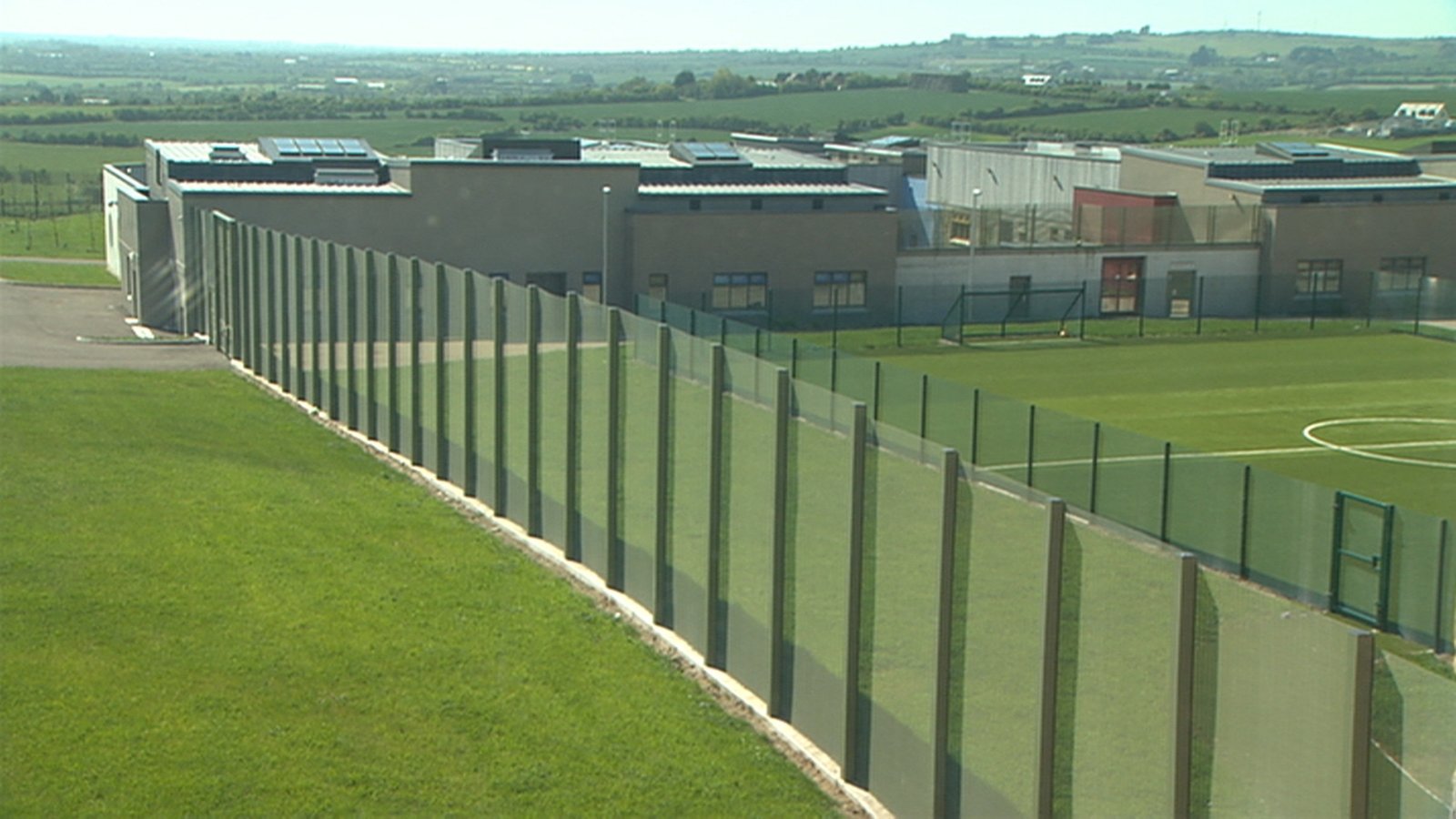Litany of challenges await Simon Harris as FG leader
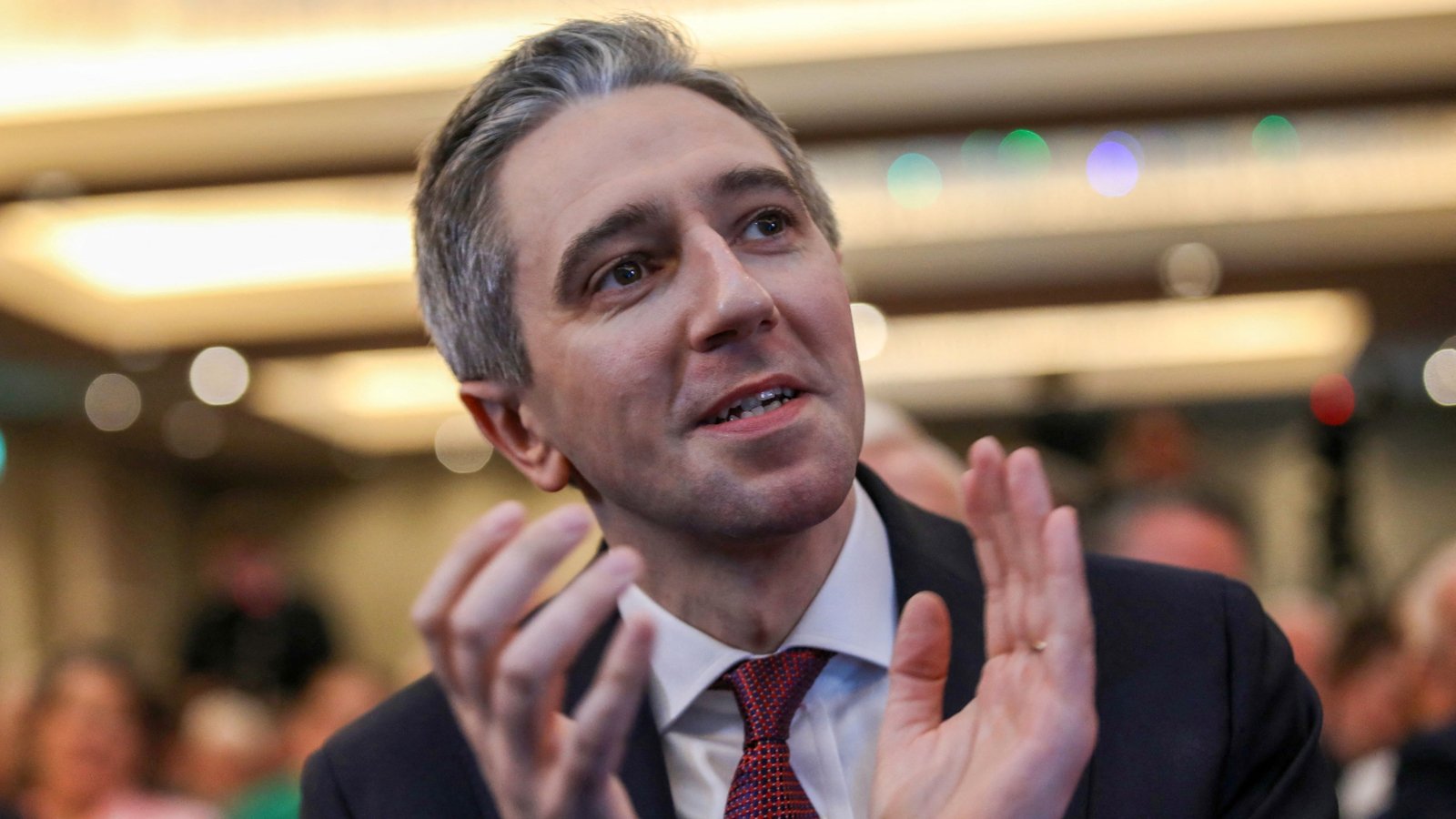
“Challenges never go away, they just change.”
It was a phrase used by Simon Harris in his speech in Athlone, Co Westmeath today after winning the one-horse race to replace Leo Varadkar and become Fine Gael’s next leader.
The now Taoiseach-elect said it was a line once said to him by former finance minister Michael Noonan, a previous Fine Gael leader himself, describing it as “wise advice”.
We need your consent to load this comcast-player contentWe use comcast-player to manage extra content that can set cookies on your device and collect data about your activity. Please review their details and accept them to load the content.Manage Preferences
And it will be advice the new Fine Gael leader could do well to remind himself of over the coming period, as he grapples with a series of challenges that will inevitably come with his new, coveted role.
Pick a cabinet (and avoid making enemies)
It’s not overstating matters to say Mr Harris’ first pressing task will be among his most potentially difficult.
Indeed, it was a point Mr Varadkar alluded to in Brussels on Thursday, when he said cabinet reshuffles are among the trickiest assignments of any leader.
In theory, of course, it’s pretty simple: Mr Harris has only one role to fill, his previous position as Minister for Further and Higher Education.
And given he has lots of ambitious backbenchers more than happy to help him solve the headache of an empty Cabinet chair by taking it themselves, it shouldn’t be difficult to find a solution.
Politics, however, doesn’t work like that, with the reality of the situation being far more complicated.
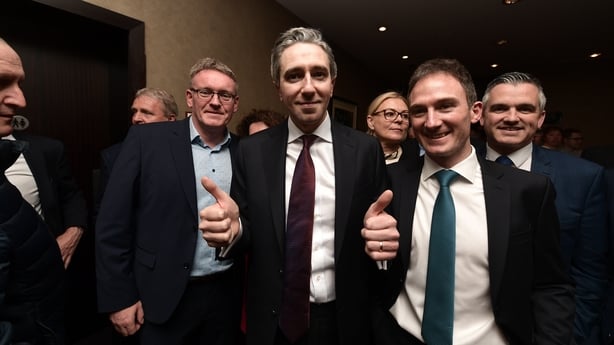
It is widely expected that Mr Harris will choose between current Minister of State for European Affairs Peter Burke; Minister of State for Financial Services Jennifer Carroll MacNeill; and Minister of State for Employment Affairs Neale Richmond to fill the now empty full cabinet seat.
However, promoting Deputy Burke or Deputy Richmond may be criticised for not improving the cabinet gender balance; promoting Deputy Richmond or Deputy MacNeill may be criticised for being too Dublin-centric; and promoting Deputy MacNeill may be criticised as she is a first-time TD.
More Cabinet space made through a wider cabinet reshuffle may also take place to accommodate a younger generation of Fine Gael TDs, with Mr Varadkar already saying he does not want to remain in Cabinet and experienced Minister for Enterprise Simon Coveney rumoured in recent days to be at risk.
But, given Mr Coveney said today he is planning to contest the next general election, would it be wise for a new 37-year-old Taoiseach to demote an able replacement completely to the backbenches – a location some may look to if the party takes a dip in the polls?
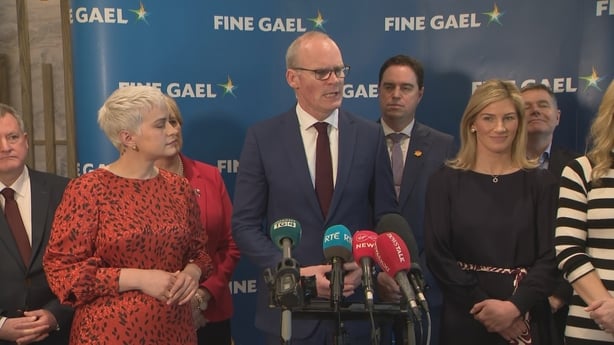
What to do with the Justice portfolio, given recent controversies in the area and Mr Harris’ emphasis on “law and order” in his leadership appointment speech, raises another question, this time around another high-profile figure in Helen McEntee.
And with Fine Gael acutely aware of the need to ensure a rural-urban balance among its ministers, speculation also surrounds whether Kerry TD Brendan Griffin – who has previously said he is stepping down at the next general election – could be asked to re-consider, presumably with the prize of a promotion if he does so.
In short, Cabinet reshuffles are a headache, and one not helped by the fact a three-party coalition means Simon Harris has just five senior ministerial roles to hand out to the great, the good and the politically useful.
Re-position Fine Gael
Once the Cabinet decisions have been made, the new Fine Gael leader and his strategists will have a far wider deeper to resolve, namely how the party positions itself into the future.
“Back to basics” is an oft-used phrase in politics for the simple reason that it works, particularly when new leaders want to quietly slide away from predecessors perceived mistakes while they try to avoid making new mistakes all of their own.
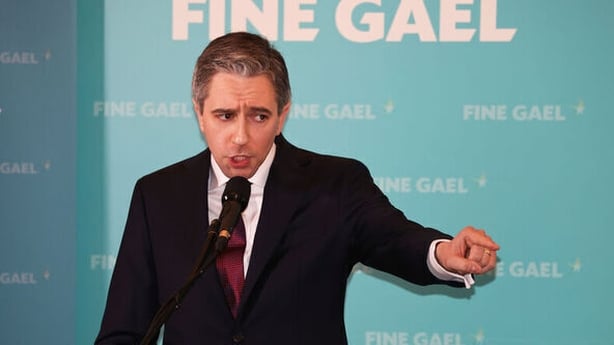
Mr Harris did not utter the words during his speech in Athlone today, but there is no doubt that the sentiment is on the minds and at times lips of party members, some of whom have not been slow to express their views publicly this weekend.
“We are not a left-wing party, we are a centre party and Fine Gael has to move back into the centre again, and more to the right,” Fine Gael TD for Mayo, Michael Ring, told RTÉ’s This Week programme shortly before Mr Harris’ appointment.
“We need to go back to core issues, law and order, we need to be doing more on law and order. We need to go back to small businesses and farmers, and we need to forget about a lot of these social issues we have been raising over the last few years that have been annoying people and upsetting people.
We need your consent to load this comcast-player contentWe use comcast-player to manage extra content that can set cookies on your device and collect data about your activity. Please review their details and accept them to load the content.Manage Preferences
“We need to win back the core support that we have lost. We need to stay with our values, and get away from the left,” he said, adding Simon Harris would “pay a big price” if he does not listen to his advice.
Some may feel that one backbench TD seemingly sounding off is not too big a deal, except it’s not just one backbench TD, with former Justice minister Charlie Flanagan – who is stepping down as a TD at the next general election – also expressing a similar view in recent weeks.
And while Fine Gael is these days a broad church of differing political hues, the fact two party mainstays have publicly expressed a view muttered in private by other members will not be lost on Mr Harris.
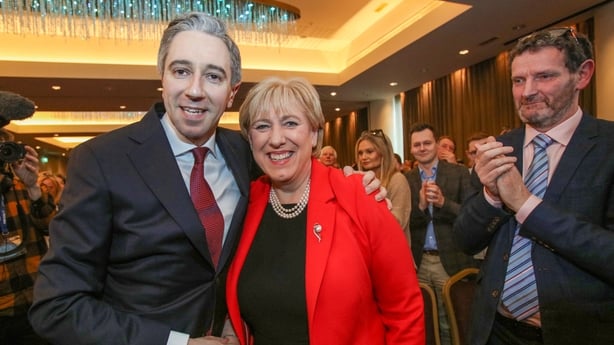
He is a politician who understands the age-old reality that a party must always keep its base happy and its identity clear if it wants to future-proof its chances of success.
In his speech, Mr Harris gave a clear hat-tip to the issue, saying “this is the moment for Fine Gael to reset, to reconnect, to renew commitment” to people across Ireland.
In the same breath, he said “rural Ireland, we have your back” and told his audience he wants to focus on both “law and order” and to introduce “a fair and firm migration system” – with his emphasis lingering on the word “firm”.
It’s unlikely Mr Harris will move much from the more recent softer image of Fine Gael on some social issues which has proven successful for the party in recent years.
But a return to a more “progressive centre” position – a phrase used by Peter Burke today, but criticised by political commentator Gary Murphy as not meaning anything – could be on the cards, with the appointment of Heather Humphreys as party deputy leader a potential indication of the subtle sea change taking place.
Hope for a Harris hop
Dick Spring had the Spring Tide. Bertie Ahern the Bertie Bounce. And, presumably, Fine Gael will now hope for the Harris Hop.
When a party changes leader, strategists inevitably keep a close eye on what impact the new face will have on support – both among the public and within the party ranks.
For now, it remains to be seen what impact the replacement of Leo Varadkar with Simon Harris will have on both areas.
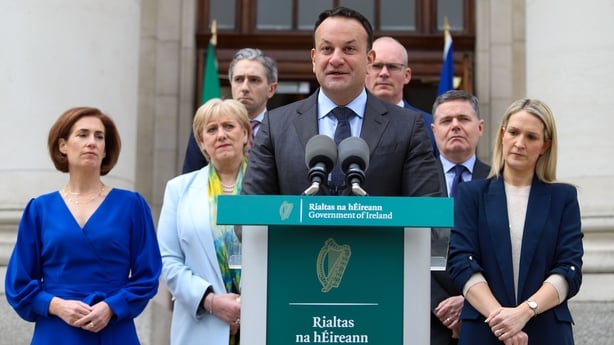
An Ireland Thinks/Sunday Independent poll, based on responses on Friday, suggested 63% of respondents have not changed their view on whether they would vote for Fine Gael after Simon Harris’ appointment, with 15% saying they would be more likely, 19% less likely, and 3% of “don’t knows”.
How the new Fine Gael leader’s shift in policy focus influences this view in the coming weeks will be watched closely, with both the local and European elections just over two-and-a-half months away on 7 June.
And an equally close eye is likely to be kept on how he approaches the housing crisis, cost of living crisis, rural transport, defence issues, climate action and international diplomacy, among other matters, as voters begin to make up their minds on the new politician in charge.
The impact within the party will also be on many people’s radars.
While Leo Varadkar’s announcement on Wednesday understandably dominated the news agenda, it should not be forgotten that almost one third of Fine Gael’s sitting TDs have said they will not contest the next general election.
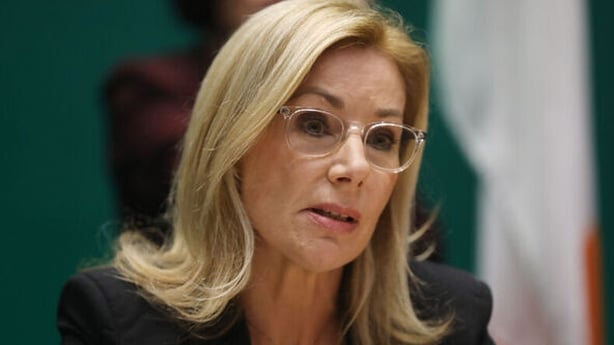
The names of Charlie Flanagan, Brendan Griffin, Michael Creed, John Paul Phelan, Fergus O’Dowd, Paul Kehoe, David Stanton and Joe McHugh outside of Dublin, and Richard Bruton in Dublin, were added to on Tuesday and Friday by Ciaran Cannon and Josepha Madigan.
When Eoghan Murphy’s 2021 departure is included, it means 12 of the 35 TDs who won seats for Fine Gael in the 2020 general election are currently exiting stage left, not including Mr Varadkar who told reporters in Brussels this week he intends to run again, while rumours continue to circle about at least two other sitting TDs.
In recent days, it has been suggested that Kerry TD Brendan Griffin could be convinced to change his plans. If he or others do, it will not hurt Mr Harris’ attempts to make an early mark as leader.
When to call an election
The last file – and, for the moment at least, it is last – waiting in Mr Harris’ Taoiseach-elect in-tray is the one that is likely to ultimately decide whether he has handled the above challenges well or not.
The timing, and result of, the next general election.
At the very latest, the current Dáil can last until 22 March 2025, a date that is a year to the day from when Simon Harris officially confirmed he would be a candidate to replace Mr Varadkar as Fine Gael leader.
But when exactly the date is set is for now anyone’s guess.
Technically, the Government could fall if the Dáil chooses not to vote in favour of Simon Harris becoming Taoiseach on 9 April, or in any or all of his potential ministerial changes, although Dáil seat numbers mean this is unlikely.
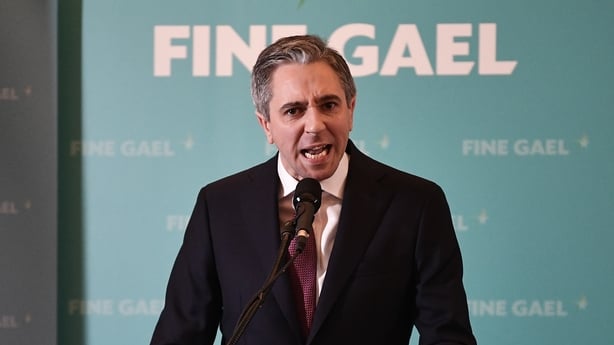
The new Fine Gael leader could also theoretically try to take advantage of a potential bump in support a new leader traditionally receives by calling a general election in early summer.
However, the local and European elections on 7 June complicate matters, and it may realistically not be enough time for him to bed in.
A potential window for a general election date just after autumn’s Budget is also rumoured, meaning the upcoming Budget is likely to have a crucial role in the fortunes of those in Government and opposition, most notably Mr Harris himself.
And the possibility of the Coalition going full term until next March should also not be dismissed, a date Fianna Fáil leader and Tánaiste Micheál Martin has consistently said he prefers and one which may ultimately suit Mr Harris too.
In his first speech as Fine Gael leader today, he said “I want to listen” and “listen carefully” to the views of people throughout the country, saying “that’s what politics is for me”.
What Mr Harris hears back, both on his own leadership and on the success or not of his approach to the challenges he faces, could ultimately define his own time in power.


